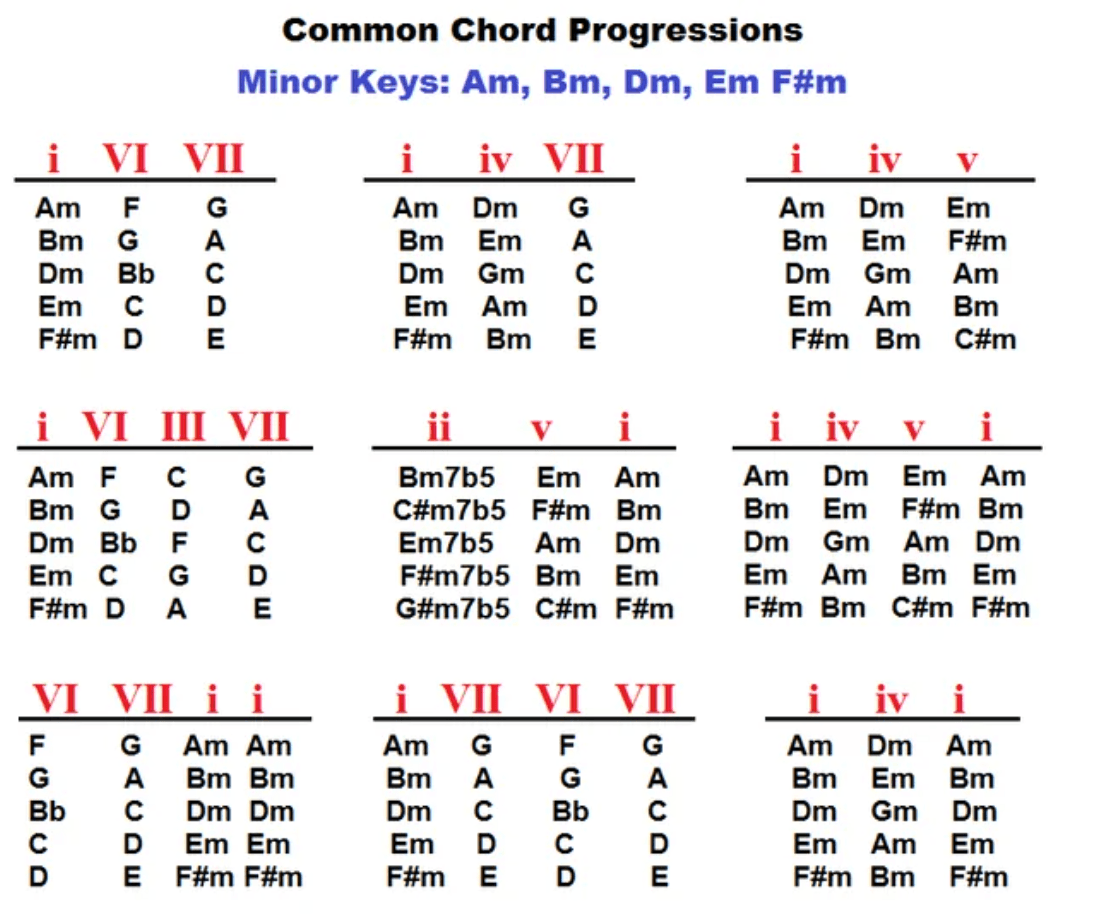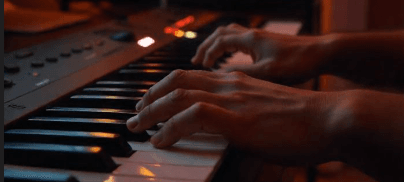Ever wondered how the modern musician crafts those captivating basslines? Enter the AI bass generator, the latest audio AI tool reshaping the contours of audio production.
Dive with us as we explore its magic, tracing the journey from ancient bass origins to its futuristic AI-driven evolution.

The Irresistible Allure of Bass
In every heartbeat, there's a rhythm, a pulse, and in music, bass serves as that fundamental heartbeat.
It's the foundation that holds up the entire structure of a song, anchoring other instruments and vocals.
A bassline is not merely a series of notes but the very lifeblood that courses through a track, giving it vitality and energy.
The Primal Connection to Our Roots
Tracing back to our ancestors, they gathered around fires, with the flicker of flames and the deep, resonant thuds of drums setting the mood.
This primal connection is why bass frequencies evoke such a visceral reaction in us. It's more than just listening to the bass; it's immersing oneself in its presence.
Whether it's the reverberation of a powerful subwoofer or the pulsating beat of a live drum, our very essence is attuned to resonate with these deep tones.
Bass Across Genres and Cultures
Bass isn't limited to a single style or culture. It transcends boundaries.
From the powerful basslines in rock and funk to the intricate low-end patterns in jazz and the heart-pounding drops in EDM, bass is the unifying element across genres. And it's not just modern songs.
Traditional instruments like the African Imzad or the Khalam from Senegal were precursors to today's bass instruments, providing deep, resonant tones that made people move.
The Science Behind the Groove
There's a reason why a good bassline can send shivers down your spine or get your foot tapping uncontrollably.
Scientifically speaking, our brains have a unique response to bass frequencies. These low frequencies are processed in the brain's same regions that process emotions.
Thus, when a DJ drops a fire bass track in the club, it's not just the audio production at play.
It's biology. Bass stimulates our brains in a way that higher frequencies can't, engaging us on a profound, emotional level.
Why Every Audio AI Tool Needs Bass
In the digital age, as we leverage AI music tools to craft songs, the importance of bass cannot be understated. An AI bass generator understands this significance.
By processing countless tracks, learning various basslines, and understanding the range of emotions they can evoke, it ensures that the music generated is not just a series of notes but an experience.
As music production evolves, ensuring that this foundational element remains robust is crucial, whether you're a professional producer or just starting.
A Quick Flashback: The Bass Odyssey
Every melody has a story, and every rhythm has its roots.
Dive deep into the strings and resonances of the bass as we embark on a journey through its illustrious past.
The history of bass is not just about the progression of an instrument but an odyssey that interweaves cultures, innovations, and the undying human spirit.
Bass Before Electrification
Long before the world was electrified by amplified sound, the essence of bass was embedded in traditional rhythms across continents.
Traditional African and Eastern music were not mere melodies but testimonies of age-old cultures and tales passed down generations.
The Imzad and the Khalam, instruments that transcend mere wood and strings, are emblematic of this legacy.
They resonate with the raw power of nature, evoking emotions deep within, and hold testament to the music's foundational spirit among the Tuareg and Senegalese peoples.
The 20th Century Bass Evolution
As the world transformed, music evolved alongside it. The 20th century marked a period where sound knew no bounds, and the yearning for amplification intensified.
As feet tapped and hearts swayed to the rhythm of jazz and swing, the need for a louder, more profound bass became evident.
The double bass, while soulful, was yearning for an electrifying transformation.
Enter Paul Tutmarc, an innovator whose 1930s invention would set the stage for the bass guitar's ascendancy.
But the real spotlight was on two game-changers: the Jazz Bass and the Precision Bass.
instruments, in unison with iconic bassists, became the heartbeat of a multitude of genres. As the count of musical styles burgeoned, the bass guitar's popularity skyrocketed, shaping and being shaped by the musical tastes of the times.
Continual Innovations: From the 1970s and Beyond
The essence of bass is adaptability, resilience, and an undying spirit of innovation. As decades rolled on, bass never remained static. The 1970s, characterized by musical explorations, saw a return to the roots with fretless basses.
These instruments allowed for a warmer, richer sound, offering smoother transitions and a touch of nostalgia. But innovation didn't stop there.
With the digital age dawning, bass guitars diversified in form and function.
The sheer range of options available to artists, from genre-specific modifications to technologically advanced features, painted a vivid picture of change and rebellion.
A reimagining of the very essence of bass, echoing the age-old adage - music, like life, is an ever-evolving journey.
AI in the Music Industry
From acoustic strings to electric amps, and now, to digital bits and bytes – music has continually been at the forefront of technological innovation.
Today, we're poised on the threshold of a groundbreaking evolution.
As we embrace the future, the fusion of artificial intelligence with our musical realm has the potential to not only innovate our means of creation but also to enrich our appreciation and engagement with music.
The Confluence of Melodies and Machines
The ever-evolving music industry never ceases to surprise. As artists constantly seek out new tools to enhance their craft, nothing has been quite as transformative as the dawn of algorithms.
The vast potential that lies in the union of music and AI is unparalleled.
Generating the Groove with AI
The true genius of AI in the music realm is most evident in its ability to generate intricate components of a song, like the popular AI Melody Generators. Basslines are the heartbeat of tracks, and have been given a new lease on life thanks to audio AI tools.
With AI's capability to analyze, learn, and replicate patterns, creating rich and diverse basslines that cater to a plethora of genres and styles has become not just feasible, but highly efficient.
More than Just Algorithms
While it's easy to marvel at the technological prowess of AI music tools, their impact goes beyond mere production.
AI serves as a collaborative partner for musicians, opening up avenues for inspiration, experimentation, and creativity.
It doesn't replace the artist but instead, enhances their vision, making the process of music creation a harmonious blend of man and machine.

Empress’s AI Bass Generator: Awesome Basslines
In a world of rapidly advancing technological marvels, music remains a universal language that binds cultures and emotions.
However, with the advent of AI, music's language is evolving, as algorithms and creativity form a groundbreaking alliance.
At the heart of this revolution is Empress's AI tool – a game-changer poised to redefine how we perceive basslines.
Meet 'Bass Brain': Your Ultimate Bass Companion
The journey from humming a tune in your head to hearing it blast through speakers often involves a complex tapestry of musical components.
Bass, the backbone, is the key to adding depth and soul. Understanding this,
Empress offers 'Bass Brain', a unique blend of AI-driven prowess and musical dexterity, aiming to bridge the gap between idea and execution.
Crafting a Sonic Masterpiece
Imagine the ease of creating a musical composition where the bass complements your vision perfectly. With Bass Brain, this isn't a distant dream.
Let's paint a picture: you're immersed in crafting an EDM banger. With a few simple inputs—like selecting "Synth Bass", dialing in your chords, setting the genre to "EDM", and marking "128" as your bpm—Bass Brain springs into action.
The result? A bassline that not only matches your track but amplifies its essence.
Unleashing the Power of AI in Music
What makes 'Bass Brain' stand out isn't just its ability to generate basslines but the myriad features it offers to elevate the musical experience.
1. Bassline Diversity: Embracing the spectrum of sonic emotions, from deep, contemplative undertones to foot-tapping, vivacious riffs, 'Bass Brain' ensures every song finds its perfect bass counterpart.
2. Genre Versatility: A true testament to its adaptability, this tool effortlessly spans genres, guaranteeing that whether you're into sultry blues or pumping techno, you're covered.
3. User-friendly Interface: Stripping away the complexities, its intuitive design ensures that even if you're a newbie or a seasoned pro, crafting the ideal bassline is a breeze.
What Makes a Great Bassline?
A bassline is more than just a series of notes played on the lower end of the musical spectrum.
It's the backbone layer of many songs, providing depth, groove, and harmony.
But what separates an ordinary bassline from a truly exceptional one?
The Cornerstones of a Memorable Bassline:
Harmonic Foundation: At its core, a strong bassline should underline the song's basic harmony. While it can often achieve this by predominantly playing the root note, doing just that might render the bassline static or mundane.
Dynamics and Variety: By alternating octaves, introducing rhythmic variations, or even briefly venturing away from the root, a bassist can emphasize the song's harmony while keeping the bassline lively and engaging.
Iconic Basslines That Defined Eras:
YYZ – Rush (Geddy Lee)
Geddy Lee's prowess is on full display in "YYZ." It's a classic Rush piece, blending rock with progressive elements.
Originating from a jam session with drummer Neil Peart, this track showcases Lee's innovative style—combining elements of funk with rock in an intricate 10/8 time signature.
Freewill – Rush (Geddy Lee)
"Freewill" is a testament to Rush's unique balance of intellectual challenge and raw emotion.
While it offers intricate time signatures and key changes, the song's beauty lies in its emotional resonance.
Here, Geddy Lee's melodic prowess subtly elevates the track, blending seamlessly with the shifting rhythms.
The Real Me – The Who (John Entwistle)
Often said to have been captured in just one take, John Entwistle's bassline in "The Real Me" stands as a testament to his unmatched talent.
While it may come across as unorthodox in isolation, within the song, it introduces an exhilarating element of surprise, echoing the track's exploration of self and contrasting personas.
Another One Bites The Dust – Queen (John Deacon)
John Deacon showcases his ability to craft pop-rock gems with this track. T
he song's infectious groove, heavily influenced by disco, is built around Deacon's minimalist bassline. It's a prime example of how sometimes, less is more.
The interplay between Deacon's steady rhythm and Freddie Mercury's dynamic vocals creates magic.
Lessons In Love – Level 42 (Mark King)
"Lessons In Love" stands as a testament to Mark King's unparalleled bass technique.
Written during a high-pressure situation for the band, it's a track where King's signature slap bass technique shines brightly.
His relentless energy drives the song, proving that a bassline can sometimes steal the spotlight in a track.

Unleash the Dragon of Your Creativity
In the vast world of music, every tool, every note, and every beat counts. As you traverse your musical journey, let Empress's AI bass generator be the dragon that guides and elevates your tracks. Ready to set your music on fire?
Dive into the unlimited world of Empress and witness your creativity soar!
FAQs: AI Bass Generator
Q1: What exactly is an AI bass generator?
An AI bass generator is an audio AI tool that uses algorithms to create and suggest basslines for music tracks based on user input.
Q2: Why use AI in music production?
AI tools, like the ones from Empress, streamline the creation process, helping musicians realize their creative visions with more efficiency.
Q3: Can an AI bass generator replace a real bassist?
AI tools are designed to aid and inspire, not replace. The human touch in music will always remain irreplaceable.
Q4: How versatile is Empress's Bass Brain across genres?
Extremely. From rock to jazz, EDM, and more, it covers a broad spectrum of music genres.
Q5: Is it difficult to integrate Bass Brain into my current music software?
Not at all! Bass Brain is designed as a plugin, making it compatible with most VST-supported music software.
Follow the future of music with Empress. Check out our blog to learn how you can effectively use these AI music tools.


